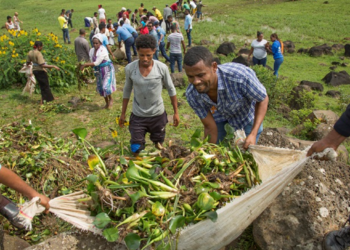Subsidies, management and climate change: world fisheries according to the OECD – World seafood production is increasing, driven mainly by the rapid expansion of aquaculture in non-OECD Asian countries such as China, India, Indonesia and Vietnam. In OECD countries, on the other hand, there is slower growth in aquaculture and a steady decline in fisheries employment, while the economic value generated is more stable.
The new OECD Fisheries 2025 report, which analyses 41 countries including OECD members and major world producers, shows a sector that is still far from a sustainable balance. More than USD 10 billion per year has been earmarked for the sector between 2020 and 2022, an amount equal to 10.6% of the total value of landings. However, 65% of these public funds have been disbursed through instruments that, in the absence of effective resource management, risk incentivising overfishing or damaging marine ecosystems.
Fuel subsidies, fleet modernisation and infrastructure are the main forms of public support, but they are rarely accompanied by sufficient control mechanisms. The OECD calls for a recalibration of these resources towards activities more beneficial to the sustainability of the sector, such as strengthening management, monitoring stocks and supporting climate resilience.
Some encouraging signs are emerging from OECD countries, where investments in monitoring, surveillance and management are increasing, while fuel subsidies are gradually decreasing. The use of income support, which is considered less environmentally risky, is also growing.
The report points out that only 59% of the assessed stocks are managed to achieve the highest possible productivity, despite the fact that 81% are in good shape. More efficient management would increase returns, reduce emissions and improve profitability, especially in an environment increasingly affected by climate change.
Another critical element concerns the lack of attention to gender issues. Disaggregated data on the role of women in the sector is lacking in most of the countries analysed, making it difficult to implement truly inclusive policies. The OECD calls for filling this gap to ensure a more equitable representation throughout the supply chain.
The year 2025 represents a strategic year for world fisheries, also in view of the 3rd United Nations Conference on Oceans (9-13 June 2025). The report proposes a clear framework for reform: reduce the most harmful forms of support, strengthen the scientific management of resources and allocate public funds to policies that are truly geared towards economic, social and environmental sustainability.
Subsidies, management and climate change: world fisheries according to the OECD









